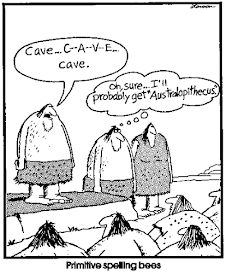If
any man should propose to you the question, how the name “Antoninus” is
written, would you not with a patient voice utter each letter?
What
then if he grow angry, will you be angry too? Will you not go on with
composure and name every letter?
Just
so then, in this life also remember that every duty is made up of certain
parts. These it is your duty to observe, and without being disturbed, or
showing anger towards those who are angry with you, to go on your way and
finish that which is set before you.
—Marcus
Aurelius, Meditations, Book 6 (tr
Long)
I have often thought that the virtue
of patience serves as a rather special and privileged extension of love. I will
only be capable of being patient with anyone or with anything once I am truly committed
to my sense of the good for anyone or for anything. As soon as I lose sight of
this, my own thoughts and actions will degrade into frustration and resentment.
I will abandon my interest, because my interest is then limited only to my own
gratification.
If I care enough to do something
right, I will continue with the task until it is complete. My obligation will
usually not be fulfilled immediately. I will be in it for the long haul. This
means that I must take everything step by step, slowly and sometimes quite
painfully, resting only when I have lived up to all of the parts within the
whole.
And this is never easy, especially
when I am struggling with mastering my own selfishness. I am responsible for
myself without condition, however inconvenient my situation may be. If someone
else has not understood, I must not blame him, but ask what I can do to explain
it better. If someone else lashes out at me, I must not lash out in return, but
ask how I might improve my concern.
My father, a linguist by trade,
would often annoy me to no end whenever I asked him how a difficult word was
spelled. Trying to teach me that letters were not just symbols randomly strung
together, he would sound out the word for me phonetically, slowly and
deliberately. I would squirm and squeal. “Just give me the darn letters!”
He would do precisely that if I
pressed him, but he would always try again, and again, to have me figure it out
for myself. I could see his jaw clench, and hear the deep breath he would take
as he practiced a patience that grew from love. When I had children of my own,
I understood the torture he surely went through. What parent has not felt the
urge to simply walk away, or to say something quite nasty, or to throw
something at the wall in anger?
I learned that this isn’t simply
about teaching someone how to spell. It’s about helping people to learn for
themselves how to live, and it’s about suffering the most ridiculous of
obstacles to do what is right, while others resist it with all their might.
I realized how love itself was on
the line. I saw how others gave up on me when things didn’t go their way, and
I saw that they did not love me. Far more importantly, I saw how often I
treated others just as poorly, and I saw what I needed to do in order to love.
A good teacher will show complete
dedication to the task of having his students learn, just as a good man will
show complete dedication to the task of having his friends be happy. Are we resented,
mocked, or cast aside? No matter. Try again, because the many parts of our
tasks are not yet done.
Written in 3/2007

No comments:
Post a Comment